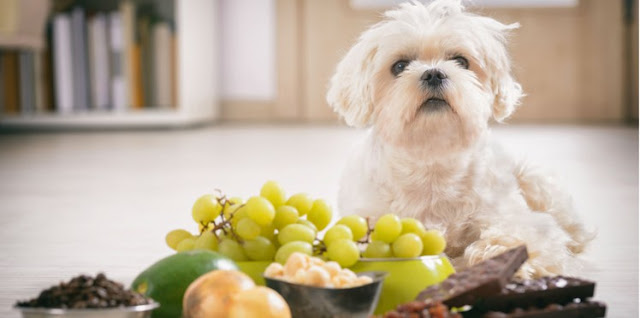Some human food can be dangerous to your pets. Educate yourself on foods to avoid so your pet stays healthy and happy.
Some foods that are considered good for people can be very dangerous for pets. The list below highlights some of the most common foods that can be dangerous to animals.
Avocado
Is a treat from the table OK for your pet? That depends on what it is. Avocados, for example, have something called persin. It’s fine for people who aren't allergic to it. But too much might cause vomiting or diarrhea in dogs. If you grow avocados at home, keep your dog away from the plants. Persin is in the leaves, seed, and bark, as well as the fruit. Also, the avocado seed can become stuck in the intestines or stomach, and obstruction could be fatal.Alcohol
Alcohol has the same effect on a pet liver and brain that it has on people. But it takes a lot less to hurt your dog. Just a little beer, liquor, wine, or food with alcohol can be bad. It can cause vomiting, diarrhea, coordination problems, breathing problems, coma, even death. And the smaller your pet, the worse it can be.
Chocolate, Coffee and Caffeine
These products all contain substances called methylxanthines, which are found in cacao seeds, the fruit of the plant used to make coffee, and in the nuts of an extract used in some sodas. When ingested by pets, methylxanthines can cause vomiting and diarrhea, panting, excessive thirst and urination, hyperactivity, abnormal heart rhythm, tremors, seizures and even death. Note that darker chocolate is more dangerous than milk chocolate. White chocolate has the lowest level of methylxanthines, while baking chocolate contains the highest.
Citrus
The stems, leaves, peels, fruit and seeds of citrus plants contain varying amounts of citric acid, essential oils that can cause irritation and possibly even central nervous system depression if ingested in significant amounts. Small doses, such as eating the fruit, are not likely to present problems beyond minor stomach upset.
Onions and Garlic
Keep onions and garlic -- powdered, raw, cooked, or dehydrated -- away from your pet. They can kill his red blood cells, causing anemia. That's even the onion powder in some baby food. A rare small dose is probably OK. But eating a lot just once can cause poisoning. Look for signs like weakness, vomiting, and breathing problems.
Grapes and Raisins
There are better treats to give your pet. Grapes and raisins can cause kidney failure in pet. And just a small amount can make a dog sick. Vomiting over and over is an early sign. Within a day, your dog will get sluggish and depressed.
Coconut and Coconut Oil
When ingested in small amounts, coconut and coconut-based products are not likely to cause serious harm to your pet. The flesh and milk of fresh coconuts do contain oils that may cause stomach upset, loose stools or diarrhea. Because of this, we encourage you to use caution when offering your pets these foods. Coconut water is high in potassium and should not be given to your pet.
Milk and Dairy
Because pets do not possess significant amounts of lactase (the enzyme that breaks down lactose in milk), milk and other dairy-based products cause them diarrhea or other digestive upset.
Fat Trimmings and Bones
Fat trimmed from meat, both cooked and uncooked, can cause pancreatitis in dogs. And, even though it seems natural to give a dog a bone, she can choke on it. Bones can also splinter and block or cause cuts in your dog's digestive system.
Salt and Salty Snack Foods
Large amounts of salt can produce excessive thirst and urination, or even sodium ion poisoning in pets. Signs that your pet may have eaten too many salty foods include vomiting, diarrhea, depression, tremors, elevated body temperature, seizures and even death. As such, we encourage you to avoid feeding salt-heavy snacks like potato chips, pretzels, and salted popcorn to your pets.













